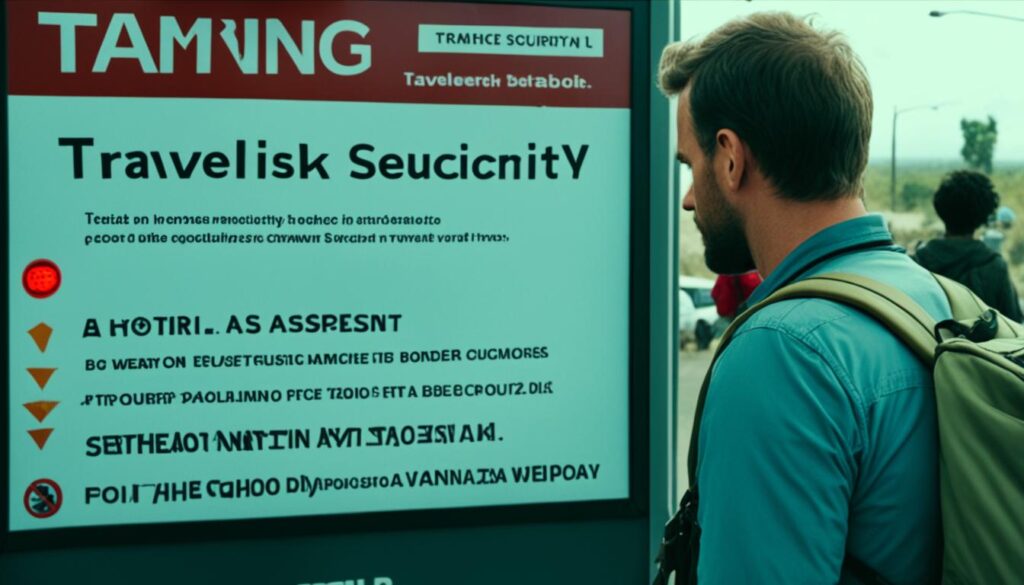Is It Safe to Travel to Ethiopia?
According to recent data, Ethiopia has experienced a surge in international tourism, with a staggering number of visitors flocking to its vibrant landscapes and rich cultural heritage. However, amidst the allure of this East African gem, there are pressing concerns about travel safety that cannot be ignored.
- Ethiopia presents security risks in various regions, with areas of violent conflict, civil unrest, and crime.
- Specific areas to be avoided include the Tigray Region, the border with Eritrea, the Afar-Tigray border areas, the Amhara Region, the Gambella and Benishangul Gumuz Regions, the Oromia Region, and the Southern Nations and National People (SNNP) Region.
- Border areas with Somalia, Sudan, South Sudan, and Kenya also pose additional security concerns.
- Staying informed, monitoring local media, and following the instructions of local authorities are crucial for a safer trip.
- Enrolling in the Smart Traveler Enrollment Program (STEP) and having evacuation plans independent of U.S. government assistance are recommended.
Travel Advisory for Ethiopia
As travel enthusiasts, we understand the allure of exploring new destinations and immersing ourselves in different cultures. However, it is crucial to prioritize our safety when planning trips abroad. In the case of Ethiopia, there are several important travel advisories and precautions to keep in mind.
The travel advisory for Ethiopia strongly advises reconsidering travel to the country due to the various security risks that have been identified. The U.S. Embassy has emphasized that the security situation in Ethiopia may deteriorate without warning, making it challenging for them to assist with departures in case of emergencies.
For U.S. citizens, it’s important to be aware that officials have limited access to those who may be detained by Ethiopian authorities. Therefore, it is crucial to stay informed about the current situation and monitor local media for any breaking events. Being aware of your surroundings and taking necessary precautions to ensure personal safety are essential.
In addition, it is advisable to carry copies of your passport and visa with you at all times. Keep them separate from the originals and in a secure place as a precautionary measure. Enrollment in the Smart Traveler Enrollment Program (STEP) is highly recommended, as it allows travelers to receive alerts and updates in case of emergencies or changes in the security situation.
By staying informed, being cautious, and taking proactive measures, we can make our travels to Ethiopia safer and more enjoyable.
Specific Security Risks in Ethiopia

In Ethiopia, there are specific security risks that travelers should be aware of in different regions of the country. It is important to stay informed and take precautions to ensure your safety during your trip. Let’s explore the security situation in these regions:
Tigray Region and Border with Eritrea
The Tigray Region and its border with Eritrea experience sporadic violent conflict and civil unrest. These areas should be approached with caution due to the potential risks involved.
Afar-Tigray Border Area
The Afar-Tigray border area is also considered risky due to the same reasons mentioned earlier. Travelers should exercise caution and stay informed about the security situation in this region.
Amhara Region
The Amhara Region in Ethiopia is known for violent conflict and civil unrest. It is important to avoid unnecessary travel to this region and keep updated on any developments.
Gambella and Benishangul Gumuz Regions
The Gambella and Benishangul Gumuz Regions have been identified as having high levels of crime, kidnapping, ethnically motivated violence, and sporadic violent conflict. It is advisable to avoid these areas during your trip.
Oromia Region
The Oromia Region in Ethiopia also presents security concerns, including sporadic violent conflict, civil unrest, and ethnically motivated violence. Travelers should exercise caution and avoid areas with reported security incidents.
Southern Nations and National People (SNNP) Region
The Southern Nations and National People (SNNP) Region is affected by security issues similar to those in other regions of Ethiopia. Travelers should remain vigilant and stay informed about the local security situation when visiting this region.
By understanding and being aware of the specific security risks in different regions of Ethiopia, you can better plan your trip and take necessary precautions to ensure your safety.
Border Security Concerns in Ethiopia

The border areas of Ethiopia pose additional security risks that travelers should be aware of. Specifically, the border with Somalia is known for its high risk of terrorism, kidnapping, and the presence of landmines. It is crucial for visitors to exercise extreme caution and avoid travel to this region to ensure their safety.
Moreover, the borders with Sudan, South Sudan, and Kenya also present their own security concerns. These include an increased risk of crime, kidnapping, civil unrest, and sporadic violent conflict. Travelers are strongly advised to avoid these border areas and refrain from crossing into neighboring countries.
Given the inherent risks in these regions, it is important to heed travel advisories and take necessary precautions to protect oneself against potential dangers.
Border Security Concerns in Ethiopia
| Border | Security Risks |
|---|---|
| Somalia | Terrorism, kidnapping, landmines |
| Sudan, South Sudan, Kenya | Crime, kidnapping, civil unrest, sporadic violent conflict |
Traveling to these border areas is not recommended, as the safety and security of individuals cannot be guaranteed. It is crucial to prioritize personal safety and well-being by adhering to travel advisories and avoiding these high-risk regions.
Conclusion
In conclusion, when considering a trip to Ethiopia, it is crucial to prioritize your safety by taking into account the travel advisory and the specific security risks in different regions of the country. By staying informed about the current situation, monitoring local media, and following the instructions of local authorities, you can minimize potential risks and have a safer travel experience.
We recommend enrolling in the Smart Traveler Enrollment Program (STEP) to receive important alerts and updates in case of emergencies. Additionally, it is advisable to have evacuation plans in place that do not solely rely on U.S. government assistance. Being proactive and prepared ensures that you can effectively handle unexpected situations and make the most of your trip to Ethiopia.
While it is true that Ethiopia offers unique cultural and historical experiences, your safety should always be a top priority. By taking these necessary precautions and being mindful of the security risks, you can confidently explore the beauty and richness of Ethiopia with peace of mind.







